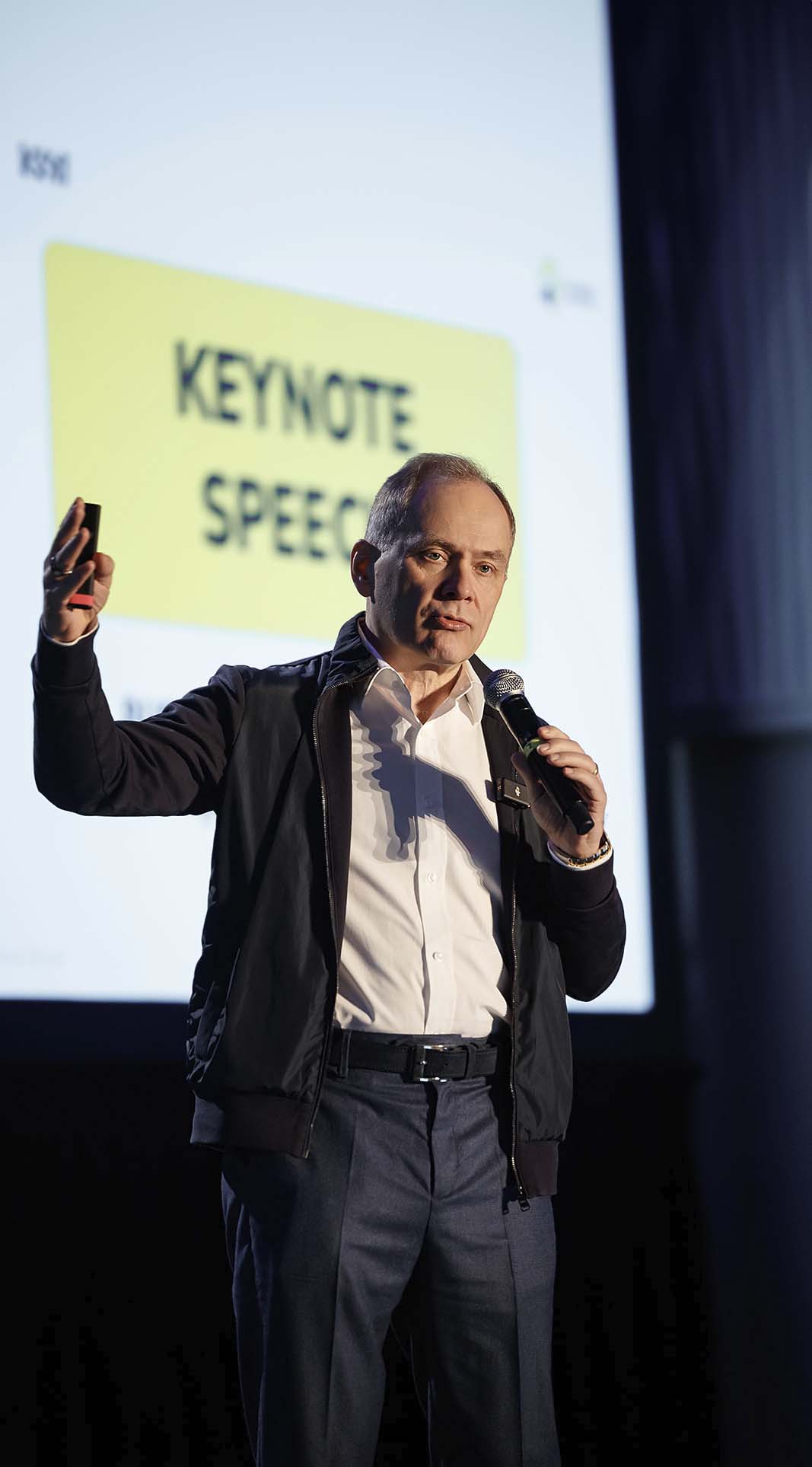5 Rules for Hiring a Director
 Alex Visotsky
Alex Visotsky
Selecting a candidate for the position of director is one of the most significant and responsible decisions a company owner can make during the hiring process. The correctness of this choice influences the strategic direction of the company's development, its culture, economic well-being, and relationships with all stakeholders.
When hiring a director, it is important to consider not only the candidate's professional skills and experience but also their ability to fit into the corporate culture, be a leader, and a strategist. The selection process should follow certain rules and criteria to ensure objectivity and effectiveness in the choice. I will discuss these in the article.
Understanding Your Company’s Needs
Hiring top management requires understanding your company's specifics and needs. First and foremost, it is necessary to identify the key skills and qualities that the ideal candidate should possess. These characteristics may vary depending on the industry, scale of operations, and the strategic tasks facing the company:
for technological startups: deep knowledge of the latest innovations and the ability to manage fast-growing teams.
for manufacturing enterprises: experience in process optimization, cost reduction, and establishing production chains.
In addition to technical skills and professional experience, special attention should be paid to cultural compatibility. The company’s culture is shaped by many factors, including corporate values, communication style, and team interaction. Top management plays a key role in maintaining and developing these aspects. The new director should not only share the existing values but also contribute to their evolution in line with the changing external context and internal needs of the company.
Vision for Company Development
The candidate’s vision for the company's development is also a critically important aspect when choosing a director. The candidate must be able to not only formulate strategic goals but also propose specific ways to achieve them, and be prepared to make bold, sometimes unpopular decisions for the long-term prosperity of the business.
Hiring top management requires a comprehensive approach, including an analysis of the candidate’s professional and personal qualities, as well as their ability to fit into the company’s cultural environment and effectively implement its strategic vision.
Development of Selection Criteria
The development of selection criteria for key management positions is a fundamental aspect of the hiring process, ensuring the selection of the ideal candidate to manage the organization. The criteria for selecting a director should include both professional and personal characteristics that help assess not only the candidate’s qualifications but also their potential in leadership and interpersonal interactions.
Professional Criteria
1. Management Experience: it is important for the candidate to have experience in managing large projects or enterprises, which confirms their ability to effectively lead and make strategic decisions.
2. Industry Knowledge: deep knowledge of the industry that the company represents is critical for quick adaptation and effective management.
3. Achievements: previous successful projects, initiatives, or improvements implemented by the candidate in other organizations can serve as excellent indicators of their competence and innovative approach.
Personal Criteria
1. Leadership Qualities: the ability to inspire and motivate the team, build relationships within the team, and establish contacts with external partners.
2. Ethical Standards: loyalty to corporate principles, honesty, and transparency in decision-making are critically important for maintaining corporate culture and trust.
3. Adaptability: the ability to adapt to changing market conditions and the internal environment of the company.
Competencies and Achievements as Evaluation Metrics
Using specific competencies and achievements of the candidate helps quantitatively and qualitatively assess their suitability for the position.
The evaluation should include:
analysis of cases from the candidate’s practice that demonstrate their ability to solve complex problems;
comparison of achievements with corporate goals to ensure that the candidate can contribute to the implementation of the company’s strategic initiatives;
use of behavioral interviews to illustrate the candidate’s past experiences in leadership and management.
Thus, the criteria for selecting a director should be comprehensive and include not only an assessment of professional skills but also an evaluation of personal qualities and leadership abilities. This ensures the selection of a leader who can not only effectively manage the company but also inspire it to achieve new heights.
Interview Process
The process of interviewing a top manager requires a special approach and thorough preparation, as the quality of the interview determines how effectively the best candidates for the leadership role will be identified. A structured interview helps not only to systematize the collection of information but also to gain a deeper understanding of the candidates' professional and personal qualities.
Structuring the Interview
Defining Key Competencies: First, it is necessary to clearly define which competencies and qualities are important for the role. These may include leadership abilities, strategic thinking, industry experience, ability to innovate, and more.
Developing Questions: Based on the selected competencies, questions are developed to identify specific examples from the candidates’ past experiences that demonstrate their suitability for the position.
Including Cases and Situational Tasks: Incorporating real business challenges or cases that may arise in the position into the interview process is beneficial. This allows for the assessment of analytical abilities and decision-making approaches.
Using the STAR Technique: This technique helps candidates structure their descriptions of situations (Situation), tasks (Task), actions (Action), and results (Result), which facilitates the evaluation of their past achievements and behaviors.
Techniques and Questions for the Interview
Behavioral Questions: "Tell us about a time when you had to make a difficult decision without all the necessary information. How did you proceed, and what was the outcome?" These questions help understand how the candidate acts in critical situations.
Strategic Thinking Questions: "Which project do you consider your most significant achievement and why?" Here, the interest lies not only in the final result but also in the candidate’s ability for strategic planning and executing long-term tasks.
Cultural Compatibility Questions: "How do you define the ideal corporate culture, and how do you fit into this picture?" This is important for understanding how well the candidate can integrate into the team and the corporate environment.
Simulations and Role-Playing: Conducting role-plays where the candidate acts as a director solving typical management tasks helps evaluate their communication and management skills in a dynamic environment.
The interview with a top manager should be dynamic and comprehensive to ensure a complete understanding of the candidate’s potential. Combining different techniques and questions allows for a deep analysis of the candidate’s competencies and their suitability for the leadership role.
Candidate Evaluation and Selection
Evaluating candidates for a leadership position requires a comprehensive approach, involving various methods to gain the most complete understanding of each candidate’s potential. This process typically includes several stages, from reference checks to case interviews, followed by a final decision and job offer. Let's consider the main evaluation methods:
Reference Checks: This initial stage involves gathering feedback from the candidate’s former employers and colleagues. References can provide valuable information about the candidate’s professional achievements, ethical standards, and personal qualities, which is especially important for leadership positions.
Psychometric Testing: Tests assessing personality traits and cognitive abilities help determine how well the candidate will handle the leadership role, their stress tolerance, and their communication skills.
Case Interviews: This method involves the candidate solving specific business problems, which allows for the assessment of their analytical thinking, strategic planning ability, and information handling skills. Case interviews offer insight into how the candidate approaches problem-solving in conditions that closely resemble the work environment.
Interviews with Multiple Stakeholders: Involving various stakeholders in the interview process can provide additional perspectives on the candidate’s cultural compatibility and leadership qualities.
After completing all evaluation stages, all gathered information is compiled for comparing candidates. The decision on candidate selection is usually made collectively to consider the opinions of all key stakeholders. The final choice is based on who best meets the predefined criteria and who can contribute the most to achieving the company’s strategic goals.
After the decision is made, the job offer stage follows, which includes discussing employment terms, salary, and other benefits. It is important to offer a competitive package that reflects the importance of the role and meets the candidate’s expectations, as any misunderstandings at this stage can lead to the rejection of the offer. The candidate evaluation process for a leadership position is multi-stage and requires careful consideration of many factors to ensure that the chosen candidate is the best fit for the company.
Interview Process
The process of interviewing a top manager requires a special approach and thorough preparation, as the quality of the interview determines how effectively the best candidates for the leadership role will be identified. A structured interview helps not only to systematize the collection of information but also to gain a deeper understanding of the candidates' professional and personal qualities.
Structuring the Interview
1. Defining Key Competencies: first, it is necessary to clearly define which competencies and qualities are important for the role. These may include leadership abilities, strategic thinking, industry experience, ability to innovate, and more.
2. Developing Questions: based on the selected competencies, questions are developed to identify specific examples from the candidates’ past experiences that demonstrate their suitability for the position.
3. Including Cases and Situational Tasks: incorporating real business challenges or cases that may arise in the position into the interview process is beneficial. This allows for the assessment of analytical abilities and decision-making approaches.
4. Using the STAR Technique: this technique helps candidates structure their descriptions of situations (Situation), tasks (Task), actions (Action), and results (Result), which facilitates the evaluation of their past achievements and behaviors.

Techniques and Questions for the Interview
1. Behavioral Questions: "Tell us about a time when you had to make a difficult decision without all the necessary information. How did you proceed, and what was the outcome?" These questions help understand how the candidate acts in critical situations.
2. Strategic Thinking Questions: "Which project do you consider your most significant achievement and why?" Here, the interest lies not only in the final result but also in the candidate’s ability for strategic planning and executing long-term tasks.
3. Cultural Compatibility Questions: "How do you define the ideal corporate culture, and how do you fit into this picture?" This is important for understanding how well the candidate can integrate into the team and the corporate environment.
4. Simulations and Role-Playing: conducting role-plays where the candidate acts as a director solving typical management tasks helps evaluate their communication and management skills in a dynamic environment.
The interview with a top manager should be dynamic and comprehensive to ensure a complete understanding of the candidate’s potential. Combining different techniques and questions allows for a deep analysis of the candidate’s competencies and their suitability for the leadership role.
Candidate Evaluation and Selection
Evaluating candidates for a leadership position requires a comprehensive approach, involving various methods to gain the most complete understanding of each candidate’s potential. This process typically includes several stages, from reference checks to case interviews, followed by a final decision and job offer. Let's consider the main evaluation methods:
1. Reference Checks: this initial stage involves gathering feedback from the candidate’s former employers and colleagues. References can provide valuable information about the candidate’s professional achievements, ethical standards, and personal qualities, which is especially important for leadership positions.
2. Psychometric Testing: tests assessing personality traits and cognitive abilities help determine how well the candidate will handle the leadership role, their stress tolerance, and their communication skills.
3. Case Interviews: this method involves the candidate solving specific business problems, which allows for the assessment of their analytical thinking, strategic planning ability, and information handling skills. Case interviews offer insight into how the candidate approaches problem-solving in conditions that closely resemble the work environment.
4. Interviews with Multiple Stakeholders: involving various stakeholders in the interview process can provide additional perspectives on the candidate’s cultural compatibility and leadership qualities.
After completing all evaluation stages, all gathered information is compiled for comparing candidates. The decision on candidate selection is usually made collectively to consider the opinions of all key stakeholders. The final choice is based on who best meets the predefined criteria and who can contribute the most to achieving the company’s strategic goals.
After the decision is made, the job offer stage follows, which includes discussing employment terms, salary, and other benefits. It is important to offer a competitive package that reflects the importance of the role and meets the candidate’s expectations, as any misunderstandings at this stage can lead to the rejection of the offer. The candidate evaluation process for a leadership position is multi-stage and requires careful consideration of many factors to ensure that the chosen candidate is the best fit for the company.
Subscribe to my newsletter
Read articles from Alex Visotsky directly inside your inbox. Subscribe to the newsletter, and don't miss out.
Written by

Alex Visotsky
Alex Visotsky
I am an entrepreneur with over 30 years of experience in the business world. In the 1990s, I founded a company that became the first Apple distributor in Ukraine, and later built Goldmaster, Europe's largest company for the production of awards and medals. Additionally, I have founded several other production and service companies. Based on my business experience, I created Visotsky Consulting and the Business Booster accelerator. Over the past 16 years, our team has helped entrepreneurs in 57 countries take their businesses to the next level and scale their operations. We operate globally, with offices in the US and Taiwan, and provide services in four languages - English, Chinese, Ukrainian, and Russian.